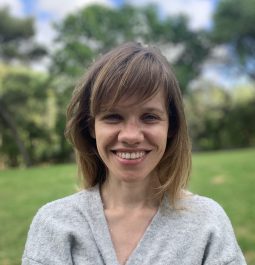Career Profile
As of 2020, I am a tenure-track assistant professor at NOVA University in Portugal, lecturing on translation at BA, MA, and PhD levels. In the past, I held the posts of vice-director at the University of Lisbon Centre for English Studies (2019-2020) and head of its Research Group on Translation and Reception Studies (2018-2020).
I am also a senior researcher at CETAPS, where I lead the ‘Indirect Translation & Sustainability’ project (2020-2023) and the ‘NObarriers2Health’ project (2023-2025, funded in a competitive scheme by the Ministério da Ciência). In 2023, the outputs of these projects were nominated for the YERUN Open Science Award and NOVA ImpACT! Challenge Award, respectively.
Before my appointment at NOVA, I also held a postdoctoral research and teaching position (2014-2020) and a PhD research position (2008-2013) at the University of Lisbon. I hold a PhD in Translation Studies from the University of Lisbon (Portugal, December 2013) and an MA in Portuguese Studies from the Jagiellonian University (Poland, September 2008).
Since the beginning of my academic career in 2008, I have been the (co-)recipient of 11 (inter)national research grants, cumulatively +€120,000.00, awarded by
- the Centre for Translation CETRA,
- Erasmus+ programme,
- European Society for Translation Studies,
- Fundação para a Ciência e Tecnologia,
- Fundação Gulbenkian,
- Instituto Camões,
- Ministério da Ciência, Tecnologia e Ensino Superior,
- NOVA Impact Office & Santander Bank,
- University of Leiden.
I regularly act as an evaluator for national research funding in Belgium (FWO), Ireland (Irish Research Council), and Poland (Fundacja na Rzecz Nauki Polskiej). I have served on the editorial boards of two Scopus-indexed journals (Anglo-Saxonica and Translation Matters), on the executive committee of one scholarly association (EST Glossary Committee), and on the jury of two international awards (YERUN Research Mobility Awards and YERUN Open Science). I have acted as a peer reviewer for major journals in the field of Translation Studies (Target, Perspectives, Meta, TTR, Translation Studies, The Translator, InTRAlinea) and international publishers (Routledge, Bloomsbury). Additionally, I am regularly invited to act as an examiner of MA and PhD vivas in Portugal and abroad.
I am also the co-founder and co-coordinator of an international network of researchers working on indirect translation, which aims to deliver a greater depth of partnership and academic collaboration across Europe.
My publications to date include over forty research outputs in leading publishers (Benjamins, Routledge) and journals (Perspectives, Target, The Interpreter and Translator Trainer, The Translator, Translation Studies). I have recently contributed chapters to the Benjamins Handbook of Translation Studies (2021), the Routledge Handbook of the History of Translation Studies (2024), the Routledge Handbook of Translation and Migration (2024) and the Eslevier International Encyclopedia of Language and Linguistics (forthcoming), and co-authored a book titled Indirect Translation Explained (Routledge, 2022). I have guest-edited five special issues in leading journals in Translation Studies, most recently a special issue of Perspectives on Pivot Audiovisual Translation (forthcoming) and a special issue of Translation Spaces (2023) on Indirect Translation and Sustainable Development.
As a former translator in the areas of literary, scientific, and technical texts, I maintain close links with the industry as a consultant, but also via my research which I developed in collaboration with different translation stakeholders that create, use, manage, support, and/or promote translations (incl. healthcare centers, NGOs, translation companies, professional associations of translators, embassies).

